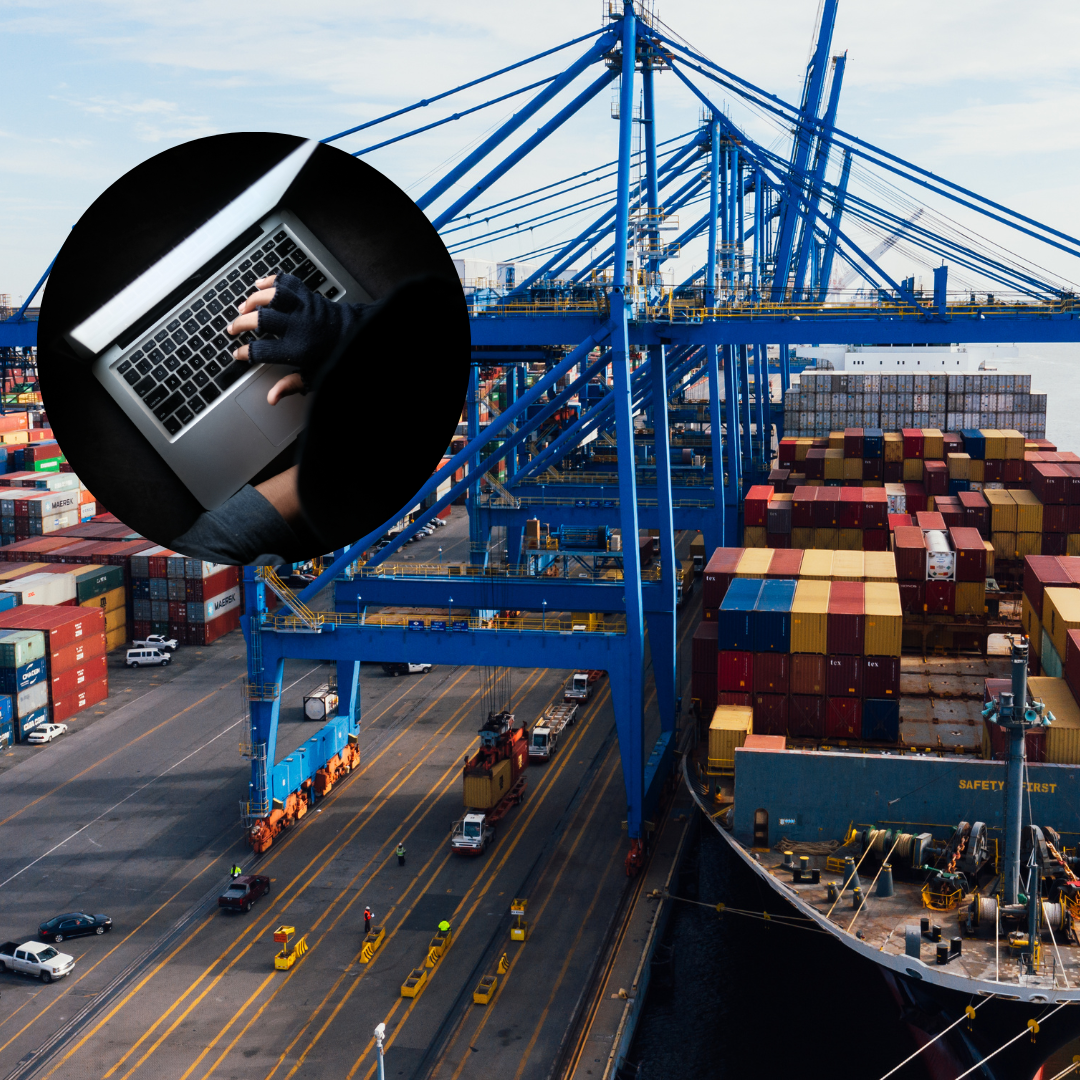In our increasingly connected world, the maritime sector is facing a new and complex challenge – the rising threat of cyberattacks on maritime infrastructure. As the sector becomes more digitised and reliant on technology, the potential vulnerabilities also increase, necessitating robust cybersecurity measures and crisis management strategies.
In extremely recent times, a range of cyber-attacks, spanning from ransomware incidents to advanced phishing campaigns, have specifically targeted crucial entities within maritime logistics. These attacks have resulted in the disruption of operations and the compromise of sensitive information. Vessels, port facilities, and shipping companies have all been victims of increasingly sophisticated cybercriminal tactics, shedding light on vulnerabilities inherent in the interconnected systems supporting maritime operations. These incidents highlight the imperative for the implementation of robust cybersecurity measures within the maritime sector. As the industry progresses through the digital age, it is essential to adopt a proactive and coordinated cybersecurity approach to guarantee the resilience and security of global maritime operations.
In this blog post, we will delve into the growing threat of cyberattacks on the maritime sector and explore essential strategies for cybersecurity crisis management.
The Digital Evolution of the Maritime Sector
Traditionally, the maritime sector has included hubs of physical activity, managing the seamless movement of goods across the globe. However, the digital transformation of maritime operations has brought unparalleled efficiency and connectivity. Automated systems, Internet of Things (IoT) devices, and sophisticated software have streamlined processes, but they have also opened new avenues for cyber threats.
The Growing Threat Landscape
Cyberattacks on the maritime sector can take various forms, from ransomware attacks that encrypt crucial systems to sophisticated phishing campaigns targeting personnel. The consequences of a successful cyberattack on the maritime sector can be severe, impacting not only the operations of the sector itself but also the broader supply chain and the global economy.
Prevention: Building Cyber Resilience
Preventing cyberattacks requires a proactive approach. The maritime sector must invest in robust cybersecurity measures, including firewalls, intrusion detection systems, and regular security audits. Employee training programs are crucial to raising awareness about cyber threats and promoting a culture of cybersecurity within the organisation.
Detection: Early Warning Systems
Early detection is key to minimising the impact of a cyberattack. Implementing advanced monitoring systems that can identify unusual activities or patterns in network traffic is essential. Artificial intelligence and machine learning technologies can play a pivotal role in detecting anomalies and potential threats in real-time.
Response: Swift and Coordinated Action
In the event of a cyber incident, a well-defined response plan is crucial. This includes clear communication channels, roles, and responsibilities for the response team. Regularly conducting simulated cyberattack scenarios helps in refining response protocols and ensuring that the team is well-prepared for a real crisis.
Collaboration and Information Sharing
Cybersecurity is a collective effort. The maritime sector should actively collaborate with industry peers, government agencies, and cybersecurity organisations to share threat intelligence and best practices. Building a strong network of support enhances the collective ability to detect and respond to cyber threats effectively.
Regulatory Compliance
Adherence to cybersecurity regulations and standards is non-negotiable. The maritime sector must stay informed about evolving cybersecurity requirements and ensure compliance to protect critical infrastructure and maintain the trust of stakeholders.
As the maritime sector continues to embrace digital technologies, the need for robust cybersecurity measures has never been more critical. The sector must adapt to the evolving threat landscape by investing in prevention, detection, and response capabilities. A proactive and collaborative approach to cybersecurity crisis management will not only safeguard maritime operations but also contribute to the overall resilience of the global supply chain in the digital age.
Resilient Services provides customised solutions to strengthen the maritime sector against the escalating risk of cyberattacks. In the event of a cyber incident, our team excels in crafting personalised response plans, regularly refining protocols through simulations, and cultivating collaboration with pertinent stakeholders. With Resilient Services as a partner, members of the maritime sector can confidently confront the complexities of the digital era. Take immediate action; contact us today to strengthen your defences before the next potential attack!




